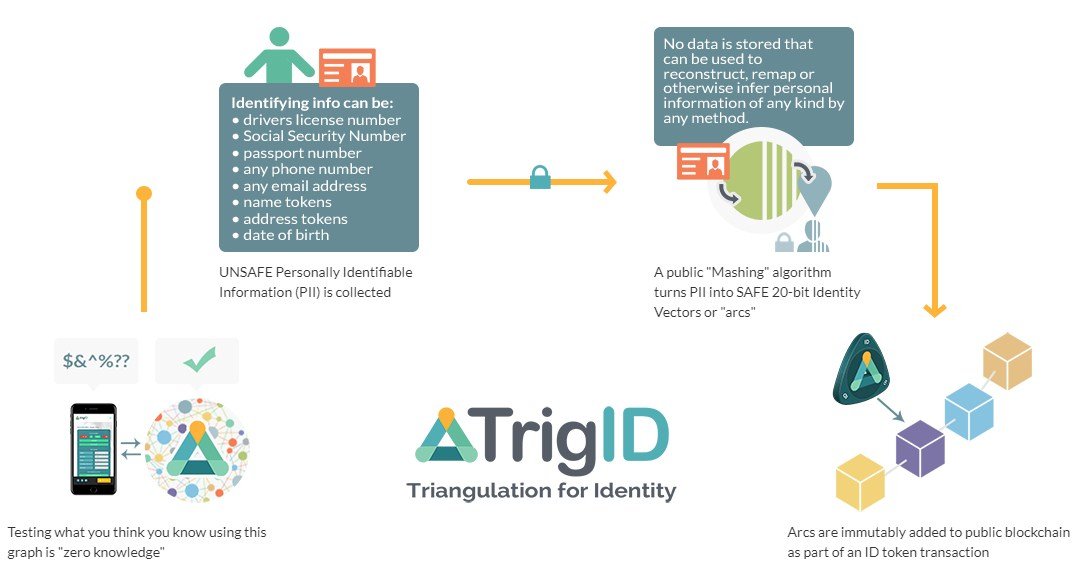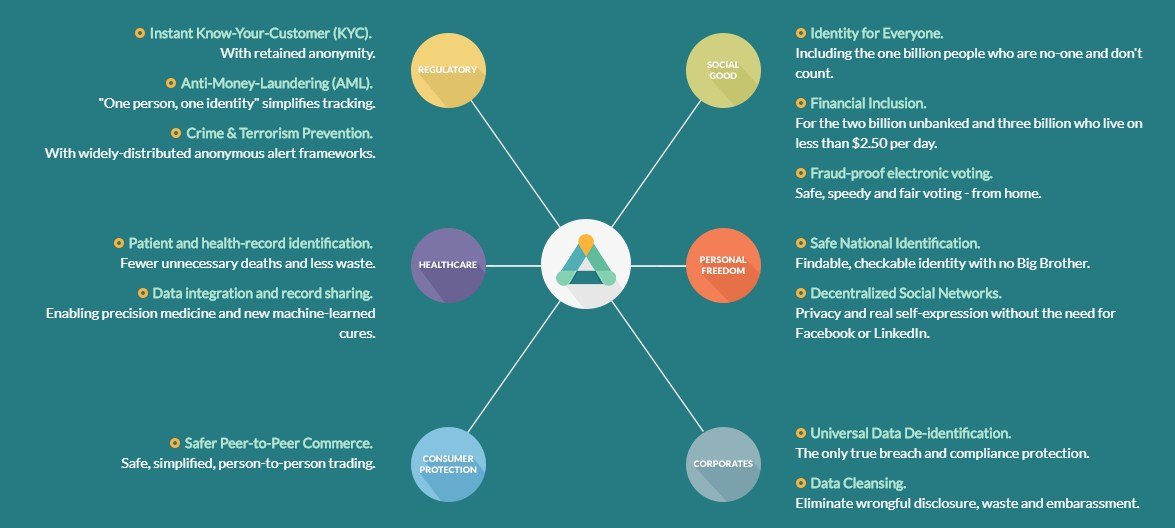
As organisations with customers, patients or constituents, we use data to build a picture of the people under our care. The more data we have, the more able we are to meet their needs and solve their problems
That picture, however, is more like a jigsaw puzzle. Your organisation has a few pieces — so does mine. The average person has data representations in a dozen or more organisation’s private databases. What’s more, 70% of the world’s data is produced and managed by private individuals. People like you and me — we’ve demonstrated a willingness to record, comment and even share.

What if we could find a way to bring all that data together to see the whole picture? Such a picture has real power to improve the life of this person — particularly given the recent advances in the field of AI known as Deep Learning. Collaborate, and we can do great things.

A Cure for Cancer?
Nowhere are the potential benefits of collaboration greater than in healthcare. More than 10% of our money is spent in the health sector, but the sector gets to use less than 0.02% of the data produced every year. Google alone processes more data in a month than the entire world health sector does in a year.
Precision medicine — treatment designed specifically for the individual — is the future of healthcare. Precision, however, needs data — data that comes from a variety of sources. Not just from fragmented medical records, but from our phone and wearables and our daily observations and measurements.
Put all this data together and teams of specialists and analysts from all over the world can contribute to our health care. Pool it, and Deep Learning algorithms and other AI strategies can discover new treatments and new cures.

Know Thy Customer
We’re all competing with Amazon, Apple, Google, Facebook, ebay, Alibaba and the other customer data monoliths. These large multinationals have large comprehensive databases that let them provide deep personalization and a consumer experience that it’s hard for the rest of us to match.
Unless we want these organisations to become our gateway to our own customers, we need to get smart and start collaborating. Collectively, we have much more data than they do.
Government for the Peop… Person
At first glance, a national identification system with one ID per person sounds like a great idea. Join fragmented records into one big database so that government can deliver care and services better. Track criminals and terrorists. Reduce illegal immigration and social security fraud.
Current systems just aren’t good enough. Every day thousands of people are inconvenienced, marginalized, given wrong or inadequate care or have their identities stolen. Much of this is because automated and human decisions rely on data that is not adequately and reliably shared.
We need something better. But do we really trust government enough to give them complete control of our identity? A centralized database that knows all about us is a powerful tool for government officers, but do we really believe that every government employee will use that power honestly and with our best interests at heart?
Much better would be to make possible the safe and reliable sharing of data between government agencies on a needs-only basis. Big data from big collaboration — not Big Brother.
Why Aren’t We already Doing It?
So, as organisations, why aren’t we sharing data and collaborating in search of better service, new insights and cures? We’re not sharing because we’re afraid. Since 2013, nearly 10 billion data records have been lost or stolen world-wide. That’s five million a day. In 2017, there were more than 1500 data breaches in the US alone, at an average cost to the organization breached of over seven million dollars.
A data breach is also not an organization’s only data-related risk. Each year brings increasingly stringent regulations designed to protect individual privacy. Europe’s new General Data Protection Regulation (GDPR) and the US Health Information Portability and Accountability Act (HIPAA) are important examples. These regulations stipulate costly management processes for Personally Identifiable Information (PII) and promise stiff penalties if you fail to comply.
The risk associated with sharing data and collaborating in search of new insights, services and cures is just too great for most organisations.
Getting Together
Several services have arisen that endeavor to make collaboration possible. In order to mitigate the breach and regulatory risks, these services ensure that the collaboration relationship is tightly constrained. To achieve this, each solution creates a new, highly-restrictive data silo — a silo of industrial strength governance with complex legal frameworks and sharing rules — and all data business is conducted within expensive infrastructure walls.

It’s a marriage of sorts — but with a 40-page prenup and a honeymoon on Rikers Island.
Any silo, by definition, has limits. These limits mean straightjacket analytics that are unlikely to provide the insights you’re looking for. Inference resulting in poor decisions will be common, serendipitous discoveries will be rare.
Even worse, such service providers won’t be quick to remind you that Deep Learning is a black box. No human can be sure just what data attributes a deep-learning algorithm will use when training itself to solve the problem you’ve given it. Restrict its inputs too much and you’ll be disappointed with the results.
A Much Better Solution
The TrigID Project introduces groundbreaking technology that allows personal information to be safely and privately stored in public blockchain. Your personal information is stored in plain sight — but it can’t be read. It can be confirmed, however, using what’s referred to as a “zero-knowledge” exchange.
One of the great properties of blockchain is that data that’s stored using it can be managed by consensus. If it’s personal data, it can be managed by all of the people who care about it. The TrigID global database will therefore be a highly-reliable, crowd-managed, consensus repository of identities.
Each TrigID captures between 10 and 20 attributes, so the the data stored by the TrigID project is limited — but it does provide a very powerful opportunity. If a person has a TrigID, Personally Identifiable Information (PII) can be removed from any data you carry about them. All records can be completely anonymized with increased find-ability and without any loss of utility. This means they can be safely shared.
The same features that make a TrigID more find-able also allow shared anonymous records to be matched with much greater reliability. It’s even possible to match two anonymous personal records that have no fields in common whatsoever.

The TrigID project makes it possible for smaller organizations to be part of broad data-sharing collaborations. Such collaborations can share data on a scale not possible using the Contractual Silo model. Sure, there will still need to be some governance — but the prenup is only one page and you get to honeymoon in Tahiti.
TIM





For more information and joining trigID social media at this time, please follow some resources for the following references:
Web site: https://trigid.org/
Bitcointalk Thread: https://bitcointalk.org/index.php?topic=4575756.0
Whitepaper: https://objects.trigid.org/whitepaper/Whitepaper_Version_1.2.pdf
ANN thread: https://bitcointalk.org/index.php?topic=4425004
Telegram: https://t.me/TrigID
Facebook: https://www.facebook.com/trigIDorg/
Twitter: https://twitter.com/TrigIDorg
fatimahzahra
Tidak ada komentar:
Posting Komentar